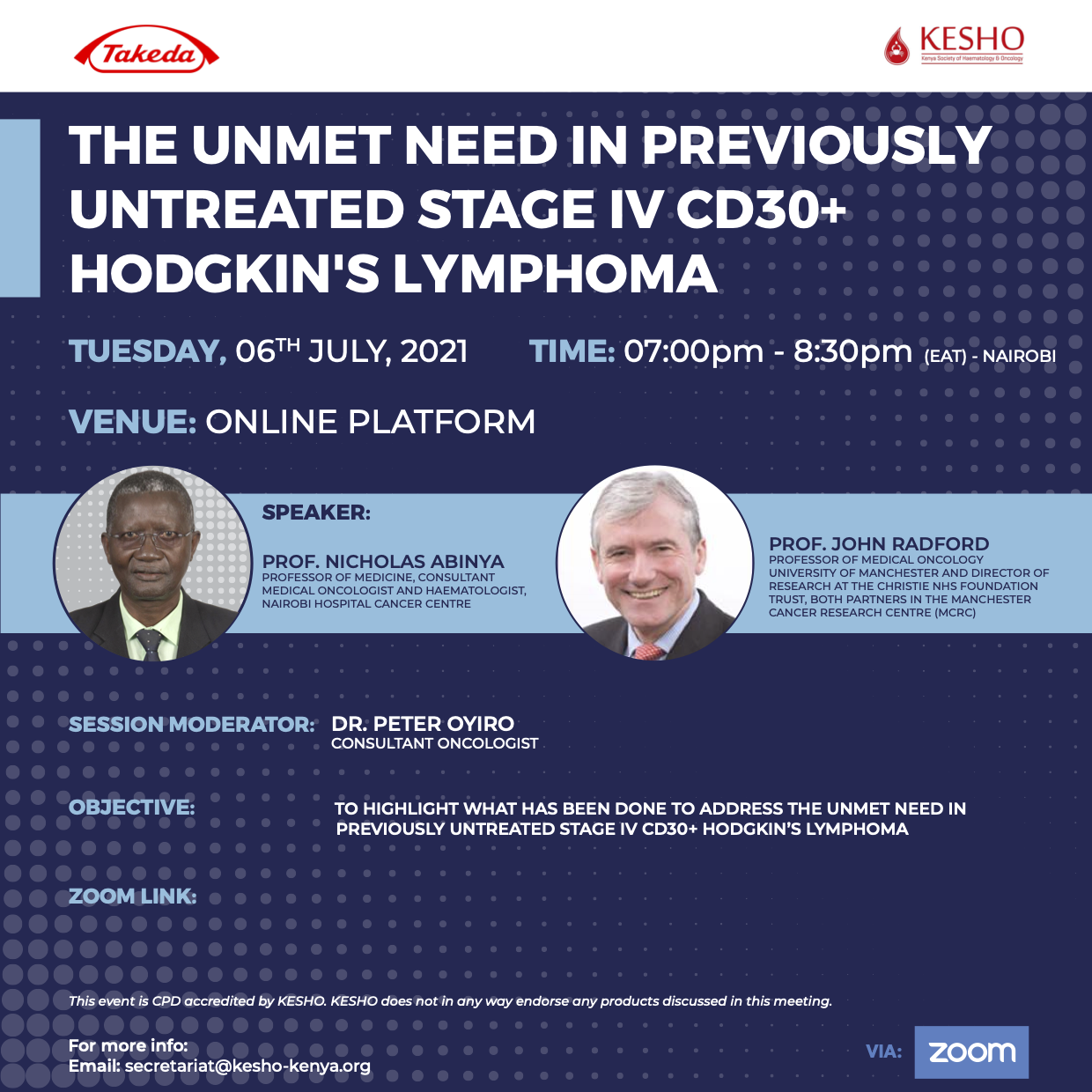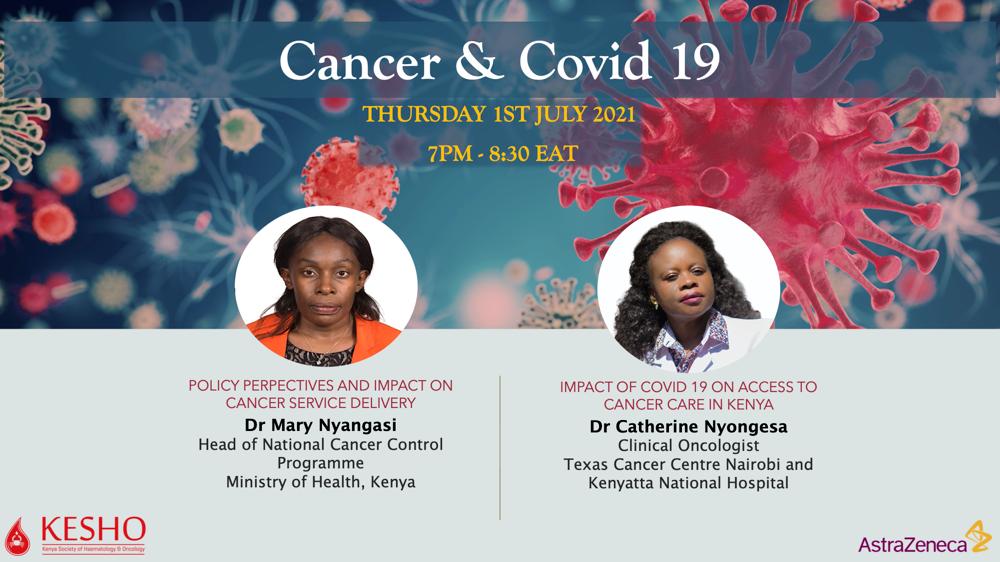
- This event has passed.
The Unmet Need In Previously Untreated Stage IV CD30+ Hodgkin’s Lymphoma
Event Navigation

Moderator: Peter Oyiro, Medical Oncologist Kenyatta National Hospital Teaching and Referral Hospital
Sponsor: Takeda, a pharmaceutical company with a patient assistance program for Hodgkin’s lymphoma in Kenya.
Presenters:
- Prof. N.A.O.Abinya, Medical Oncologist, the Nairobi Hospital Cancer Centre.
- Prof. John Radford, Professor of medical oncology, University of Manchester, Director of Research at the Christie NHS Foundation Trust. Both partners in the Manchester Cancer Research Centre.
Hodgkin lymphoma (HL) is a germinal center B cell lymphocytic lymphoma with Reed-Sternberg cells and their variants. It is less frequent than non- Hodgkin lymphoma (NHL) and constitutes 10% of all lymphomas. It is more prevalent in black males all over the world. It has a single peak age of occurrence at 17 years and a bimodal incidence with a peak age between 15-30 years and 50-70 years. It is more frequent in cases with mixed cellular histology, males, children, and older adults and is more prevalent in developing countries. Although the etiology is unknown, immune depression, infectious agents, and environmental factors are associated with the disease. Up to 40% of HL cases are associated with infection with Epstein-Barr-Virus (EBV), an oncovirus whose oncogenes generate a particular phenotype of the Hodgkin Reed-Sternberg (HRS) cells. HRS attracts a supportive microenvironment of immune and stromal cells, suppressing local immune responsiveness. Furthermore, EBV induces epigenetic changes in the host genome, in addition to altering the composition and activity of the immune cells surrounding the HRS cells. The mechanisms of tumorigenesis involve dysregulation of several signaling networks and transcription factors including NFkB, possibly by CD30 receptor signaling, leading to genomic alterations affecting RS cell survival and immune evasion. Although there are no genetic defects to malignant HRS cells, a number of molecular defects have been demonstrated. HL presentation involves a single peripheral lymph node with a centrifugal distribution and a continuous spread. Splenomegaly occurs in 50% of cases during the course of the disease. HL staging is by history, physical examination, blood hematology and chemistry, bone marrow aspirate, and biopsy and imaging. About 95% of early HL is treated while for advanced disease, 70% of the cases are cured. Radiotherapy is now obsolete while chemotherapy is the common mode of treatment. Antibody therapies, immunotherapies, and immune checkpoint inhibitors mainly targeting programmed cell death 1 (PD-1) are available. However, when used on their own, they hardly induce a complete response; instead, they convert HL into a chronic disease. Newer combinations of drugs are in use. Unlike in NHL, CAR-T cells do not work in HL, due to the absence of the target, CD19. Brentuximab vedotin is an antibody-drug conjugate targeting CD30 and is effective as a single agent in relapsed/refractory Hodgkin lymphoma. Although EBV is associated with so many cancers, there is no vaccine targeting this oncogene. The cost of treatment is a major challenge to many patients in developing countries. Quality of cure is also a major concern in developing as well as developed countries.

